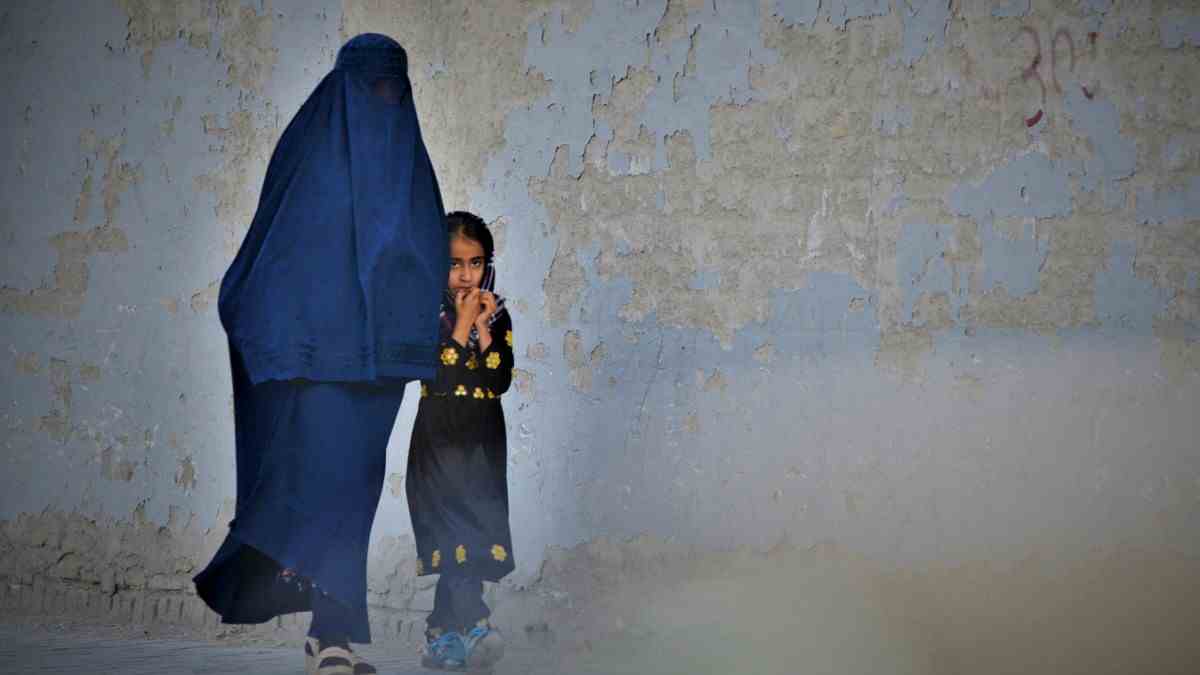She only speaks a few sentences, but they unleash a force that can only arise in historical moments: “Dear sisters, you are free, you can do whatever you want. Come out into the streets, you no longer need the burqa wear.” These are the words of Jamila Mujahid, a journalist who, on November 13, 2001, announced the overthrow of the Taliban to women in Afghanistan over the radio. Her words end the five “years of darkness” in which women had to stay out of the public eye. And if they went out on the street, then only accompanied. Or fully veiled in a burqa.
20 years later, last summer, the Taliban retook Kabul. An incompetent Afghan government and a West thwarted by its hubris paved the way for them to return to power. The president fled, and in his palace the bearded men proudly presented their Kalashnikovs. A picture of horror.
The use of the West features prominently in the textbook on failed interventions. In the end, the vanquished still meekly refer to the progress they have made for women and girls who are allowed to work and go to school. But a few months later it is clear: the Taliban have long since turned back the clocks.
The hardcore ideologues
The Taliban once again exclude women from public life. Afghan women are no longer allowed to travel alone, visit the Kabul zoo, and older girls in many parts of the country are not allowed to go to school. After a series of misogynistic decrees, the Taliban have now issued a burqa requirement, proving once again how fundamentally they disregard women’s right to self-determination. This step interrupted, at least for a moment, the apathy that had prevailed in the West for a long time towards Afghanistan and drew a little criticism in its wake.
But the Westerners can no longer and do not want to do more than scourge. Afghanistan does not just stand for an embarrassing defeat. It is also forgotten. The country is now once again under the control of men who have brought themselves back to power militarily and diplomatically, but who remain socio-politically in the past. The Taliban’s top priority: Close their own ranks and satisfy the religious fanatics. This is particularly bitter for the women and girls who cannot leave the country – the progress of the past two decades is now simply being taken away from them.
To avoid any misunderstandings: Even during the Western presence, Afghanistan was not a country where gender equality prevailed. The burqa has remained an integral part of the dress code for women and young girls, especially in rural areas. But the fact that universities were open to women, that they had their say on TV talk shows, that they were even perceived as a social factor, that they were allowed to play football – all these achievements are now being reversed.
The courage of the women of Kabul
“The supreme unmistakable test of Islam was the emancipation of women, which began by proclaiming it and then – more slowly – putting it into practice,” historian Fernand Braudel once wrote. These words do not fit into the world of the Taliban. Their edicts are similar to the decrees of the first five years of their regime.
The forces of inertia in Kabul are immense: the Taliban are continuing their hardcore ideology, which they were once drilled into in Pakistani religious schools. The fight against the communist Soviet Union in the 1980s was supposed to be religiously charged. This fanaticism, along with the American missiles used to shoot down the Russian planes, was the main driving force behind many fighters trying to drive the Red Army out of Afghanistan. After their withdrawal, they defeated the other resistance groups and established a first reign of terror. Irony of history: The fight of the Islamists was also supported and financed by the USA, and the Taliban first fought the former sponsors of the religious extremists after the invasion in 2001 and drove them out 20 years later.
The victims of these mistakes are now the people in Afghanistan, especially the women. The Taliban II regime is a reality, and there is little evidence that it will remain in power for a short time. The women face another period of darkness. There is a little hope: In Kabul, women still dare to take to the streets to demonstrate for their rights and against the Taliban decrees. Even though the groups are small, their bravery is remarkable as they face armed Taliban. These women can no longer rely on the West. But is it perhaps precisely because of this that these groups can become a movement, can women lead the resistance and initiate change in Afghanistan? These questions will show whether 20 years of women’s rights, school and the first steps towards self-empowerment have changed something.

